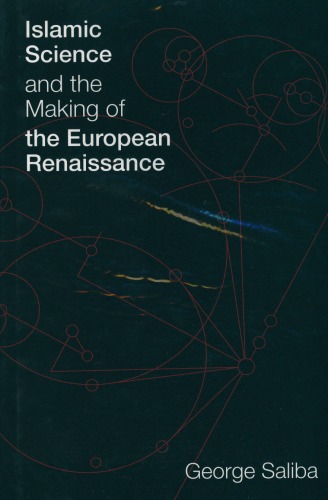

Most ebook files are in PDF format, so you can easily read them using various software such as Foxit Reader or directly on the Google Chrome browser.
Some ebook files are released by publishers in other formats such as .awz, .mobi, .epub, .fb2, etc. You may need to install specific software to read these formats on mobile/PC, such as Calibre.
Please read the tutorial at this link. https://ebooknice.com/page/post?id=faq
We offer FREE conversion to the popular formats you request; however, this may take some time. Therefore, right after payment, please email us, and we will try to provide the service as quickly as possible.
For some exceptional file formats or broken links (if any), please refrain from opening any disputes. Instead, email us first, and we will try to assist within a maximum of 6 hours.
EbookNice Team

Status:
Available4.7
21 reviews
ISBN 10: 0262195577
ISBN 13: 9780262195577
Author: George Saliba
The rise and fall of the Islamic scientific tradition, and the relationship of Islamic science to European science during the Renaissance. The Islamic scientific tradition has been described many times in accounts of Islamic civilization and general histories of science, with most authors tracing its beginnings to the appropriation of ideas from other ancient civilizations—the Greeks in particular. In this thought-provoking and original book, George Saliba argues that, contrary to the generally accepted view, the foundations of Islamic scientific thought were laid well before Greek sources were formally translated into Arabic in the ninth century. Drawing on an account by the tenth-century intellectual historian Ibn al-Naidm that is ignored by most modern scholars, Saliba suggests that early translations from mainly Persian and Greek sources outlining elementary scientific ideas for the use of government departments were the impetus for the development of the Islamic scientific tradition. He argues further that there was an organic relationship between the Islamic scientific thought that developed in the later centuries and the science that came into being in Europe during the Renaissance. Saliba outlines the conventional accounts of Islamic science, then discusses their shortcomings and proposes an alternate narrative. Using astronomy as a template for tracing the progress of science in Islamic civilization, Saliba demonstrates the originality of Islamic scientific thought. He details the innovations (including new mathematical tools) made by the Islamic astronomers from the thirteenth to sixteenth centuries, and offers evidence that Copernicus could have known of and drawn on their work. Rather than viewing the rise and fall of Islamic science from the often-narrated perspectives of politics and religion, Saliba focuses on the scientific production itself and the complex social, economic, and intellectual conditions that made it possible.
1 The Islamic Scientific Tradition: Question of Beginnings I
Critique of the Classical Narrative
Other Problems with the Classical Narrative
Scientific Instruments and Observational Astronomy
Problems with the End
2 The Islamic Scientific Tradition: Question of Beginnings II
The Alternative Narrative
The Historical Account of the Rise of Science in Early Islamic Times According to al-Nadīm
Al-Nadīm’s Alternative Narrative
The Consequences of the Dīwān Translation: Ascension to Power by Other Means
Conclusion
3 Encounter with the Greek Scientific Tradition
Reaction to the Greek Scientific Legacy
Subtler Observations
Mathematical Reconstruction of the Almagest
Cosmological Problems of the Almagest
The Astronomical Shukūk Tradition
Theoretical Objections
Conclusion
4 Islamic Astronomy Defines Itself: The Critical Innovations
The Problems with Ptolemaic Astronomy
Planetary Motion in Latitude
Islamic Responses to Ptolemaic Astronomy: Creating an Alternative Astronomy
The Work of ʿUrdḍī
Naṣīr al-Dīn al-Ṭūsī
Alā al-Dīn Ibn al-Shāṭir of Damascus (d. 1375)
Shams al-Dīn al-Khafrī and the Role of Mathematics in Astronomical Theory
Conclusion
5 Science between Philosophy and Religion: The Case of Astronomy
The Philosophical Dimension
He followed that with a more damning statement:
He continued:
Astronomy and Religion
Conclusion
6 Islamic Science and Renaissance Europe: The Copernican Connection
Connections between Renaissance Europe and the World of Islam
With all these problems laid bare, Swerdlow concluded:
Possible Routes of Contacts with Copernicus
The Byzantine Route
The Renaissance Arabists
Contacts in the Field of Instruments
Traffic from “East” to “West”
Conclusion
7 Age of Decline: The Fecundity of Astronomical Thought
Critique of the Classical Narrative
Notes and References
Bibliography
Index
islamic science and the making of the european renaissance
the making of islamic science
the making of islamic science pdf
islamic book making
islamic science and learning
islamic bookmaking and literature
Tags: George Saliba, Islamic, Science